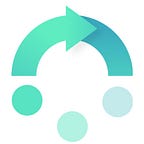Responsive Flashcards
A few months ago, we launched Carousel’s revolutionary C-Scores feature. We know that however intelligent an online learning platform is, its success rests on the teacher driving the process. In the absence of strong teacher input, students might “complete” homework in a technical sense — tick; done! — but they don’t learn from it. Teachers need to be deeply embedded in the process of student knowledge growth: guiding, directing and, crucially, responding to student knowledge as it develops. C-Scores allow the computer to do what it does best — crunch numbers — and empower the teacher to do what they do best — figure out informed next steps for their students. Imagine knowing to a granular level exactly which things your students know well and which they don’t. Imagine knowing when the last time they did retrieval on a particular item was, or when the last time they saw that item was. Imagine how it would affect and change your ability to plan next steps. C-Scores do all this and more.
C-Scores were a deliberate attempt to make Carousel even more adaptive and responsive to student learning, but they only mark the start of a wider strategy called Responsive Quizzing. The next step of that strategy is to give students a greater ability to regulate and respond to their own knowledge as it grows over time.
In the past, before students accessed their teacher-set quiz, they had the opportunity to use flashcards to prepare for that quiz. We aren’t changing that basic research-based principle, but we are changing how they use those flashcards. Before, students could scroll through flashcards and flip them over to see the right answers, but beyond that process they couldn’t vary or adjust which ones they saw. Going forwards, they will have much greater control over that process, and will be able to work with Carousel to manipulate the flashcard set to remove flashcards they know well, and revisit ones they know less well:
Once a student has flipped the card and seen the answer, they can decide if they know it (right), don’t know it (wrong) or are nearly right. If they mark it as right, it goes in the green pile, and they won’t see it again until they reset the deck. If they mark it as “nearly right”, it goes into the orange pile and will return in six cards’ time. If they mark it as “wrong”, then it goes into the orange pile but will return in three cards’ time. If they finish the deck, they get some nice mastery-approach messaging about how well they’ve done, and a reminder to come back again soon:
This system gives students a greater ability to manage their flashcards and focus on items that they really need more work on. It should help them self-regulate their time and think harder about where they need to dedicate their time and energy.
That doesn’t mean they will automatically be perfect self-regulated learners in total command over what material they should be exposed to and when. They will still need extensive training from their teachers, and as discussed in Retrieving Better, it’s always a good idea to do a “trial lesson” with your students when first introducing them to Carousel and quizzing. Get the laptops out, show them what a quiz looks like and make sure they know what the “standard” is for saying that they got a particular item “right” or “wrong.” Teach them explicitly how to answer flashcards — how to speak it out, write it down or work with a friend or family member to verbalise their answers.
Importantly, the flashcards are only the first “round” of retrieval practice, and when it comes to normal quizzing it is the only round which the students will have autonomy over. When it comes to future rounds of retrieval like the actual quiz that follows the flashcards, or the Whiteboard quiz or Feedback generated from the quiz, the teacher is firmly back in the driving seat. We want students to have autonomy, we want them to learn how to judge and monitor their own learning, but we know that this isn’t a straightforward undertaking, and this autonomy is best thought of as a process that builds over time. As with many aspects of teaching, there is a dynamic balance at play, with the amount of direction or support offered by the teacher gently decreasing over time in response to students growing in their knowledge and self-awareness.
